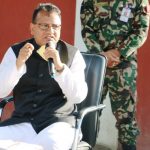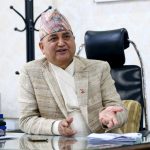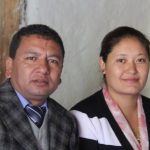 Chennai: Hypertension isn’t an adult disease anymore. An increasing number of school students are being diagnosed with high blood pressure. A Chennai-based hospital found 17.4% of CBSE school students between eight and 17 years have high blood pressure.
Chennai: Hypertension isn’t an adult disease anymore. An increasing number of school students are being diagnosed with high blood pressure. A Chennai-based hospital found 17.4% of CBSE school students between eight and 17 years have high blood pressure.
Doctors at the MV Hospital for Diabetes have been working on a ‘Slim and Fit’ programme to help students maintain good health and dietary practices. On the eve of the World Health Day, as doctors across the globe are focusing on the theme ‘high blood pressure,’ a survey of 1,898 students showed that incidence of hypertension was high among boys (18.7%) compared to girls (15.7%). “The study shows abnormal blood sugar levels among children mostly due to obesity. We had not seen such a trend earlier,” said diabetologist Dr Vijay Vishwanathan, who heads MV Hospital for Diabetes.
Unlike tests done for adults, for children, blood pressure was not measured with BP apparatus. Children have hypertension if their blood pressure is above the normal average of children who are of the same sex, age and height. In the MV hospital study done in 10 CBSE schools, doctors found 10% of children with pre-hypertension and 17.4% with hypertension. During the study the children were divided into three groups based on their age — 8 to 10 years, 11 to 13 years and 14 to 17 years. “We saw an increase in prevalence of hypertension with increasing age,” he said.
Delhi-based diabetologist Dr Anoop Misra, who did a similar study among children in his city, says hypertension had become increasingly common in children, but was largely under diagnosed. After studying 1,022 children aged 14-19, his team found that nearly 6% of children had hypertension. “Hypertension in Indian children is associated with obesity, high cholesterol and family history of diabetes,” he said.
While most of them can be corrected with better diet and exercise, some of them may require lifelong medication. In the past five years, doctors are increasingly prescribing medication to teenagers. “We see children who are obese, diabetic and hypertensive. Like adults, many children in their late teens are given anti-hypertensive drugs, insulin shots and blood thinners because we know they are at risk for heart attacks or strokes,” said diabetologist Dr V Mohan, who heads the Madras Diabetes Research Foundation.
They hope that by diagnosing and treating hypertension early, they will save lives. However doctors say they don’t yet have any data on the long-term use of antihypertensive drugs in children. “But we know the benefits of taking the drugs are much higher,” said Dr Mohan. However, most diabetologists prefer lifestyle modifications such as dieting and exercise sans medicines. Lifestyle changes are the first option. Such children were asked to go on low-salt, low-sugar and low-fat diet along with good physical exercises. “For many children, the conditions reverse. A few others are put on medication,” said Vijay.
TNN





